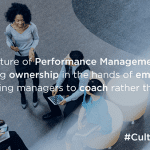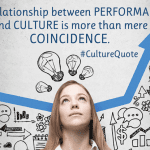Development and Evaluation: A Cultural Paradox?
A host of major companies across industries are actively revamping their Performance Management (PM) systems. As corporate heads and industry professionals scrutinize the issues, the common wisdom has decreed that old PM systems fail not only from an evaluative perspective (how employees are assessed) but from a developmental perspective (how employees are trained). I believe this cannot help but be the case if a system designed to accomplish one objective is suddenly expected to satisfy both.
Performance Management informed by Operational Development
It is almost assured that the development objectives for Performance Management 2.0 will fail if we attempt to merely retrofit evaluative tools for use in the development process. Successful PM must take into account the inherent paradox embedded in evaluative and developmental processes. Organizational Development (OD) offers insight that can help build a more effective PM culture in “Performance Management 2.0.” All are centered around issues of “ownership.”
- Compliance-driven Development vs. Coaching-driven Development. Who is setting the goals for an employee’s development? Does development feel like something “they’re doing to us” or is it a career growth path the employee has bought into?
- Corporate Ownership vs. Employee Ownership of Assessment Data. Who gets to see the results of employee assessments? If HR manages both assessment and development, how do you avoid the risk that evaluation will “sneak in” to the development process?
- Big Data vs. Small Data. Gathering more and better data does help an organization make smarter decisions about compensating and utilizing its people. But it may obscure the need for small data: informal, ongoing, even un-documented conversations that help both the employee and the manager meet personal and corporate goals.
As companies wisely increase their investment in employee development, the question remains: can traditional HR departments effectively handle both the traditional evaluative and the new developmental roles? Insights from Organization Development can help us develop the answer to that question.
For more on how these and other insights from OD can help inform the future of Performance Management and corporate culture, see “3 Development Principles to Live By, and How they Re-Shape Performance Management 2.0.”
By Levi Nieminen, Ph.D. Director of Research and Senior Consultant with Denison Consulting




